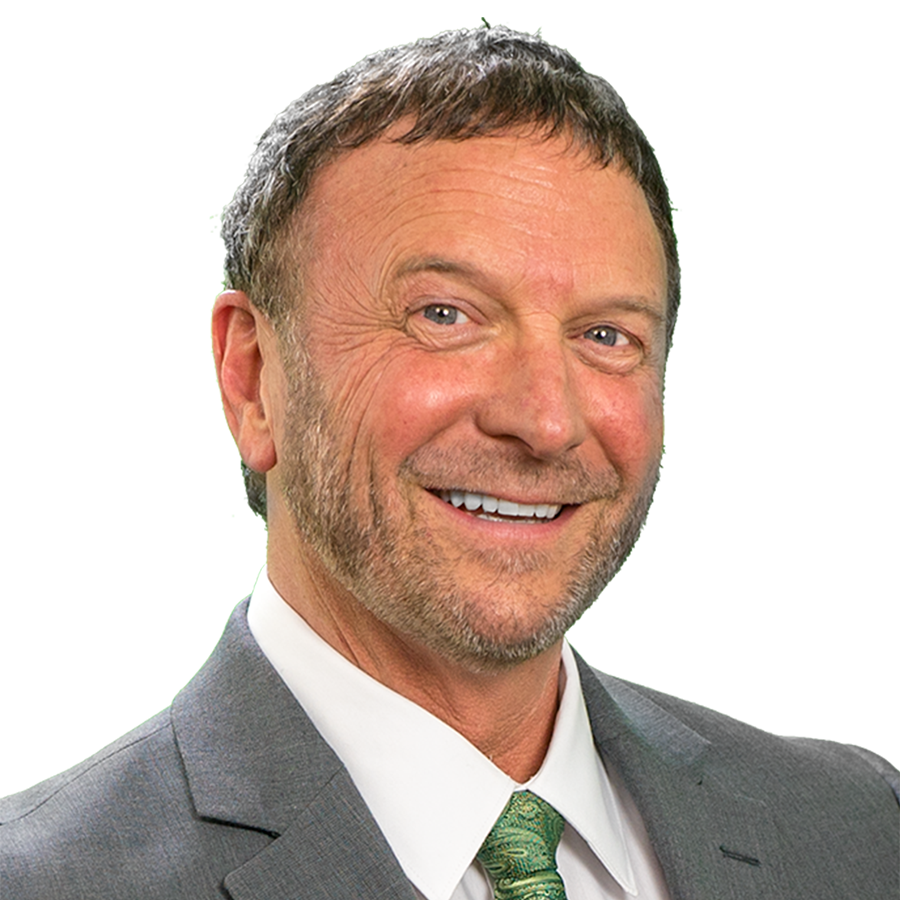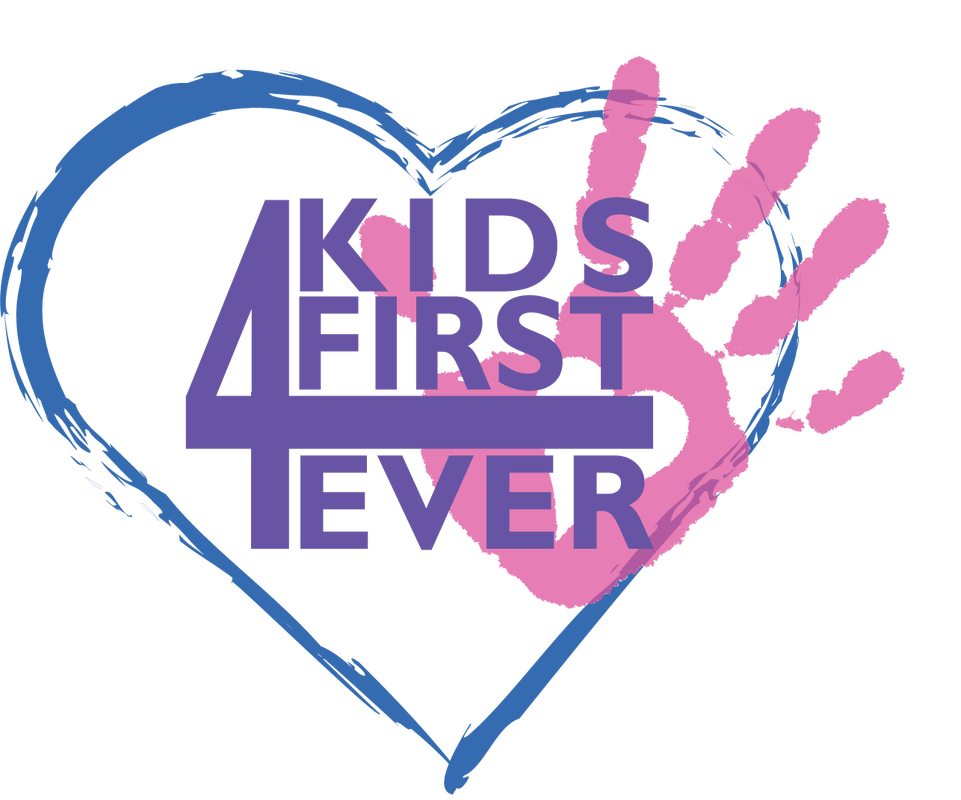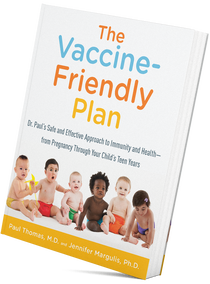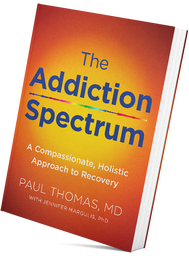PDF:TEXT:Dr. Paul 0:00
Dr. Paul Welcome to against the wind doctors in science under fire. This segment I interview, Dr. Zenga, he is a former president of the American Academy of Pediatrics. Now, as you might wonder, we may not agree on everything. But I wanted you to hear from somebody as prominent as Dr. Sangha. Every opinion is important. And I think what's interesting is COVID has done something. I mean, even the most prominent mainstream doctors, some of them are going something's not right here with COVID. So we discussed that we discuss a history of Pediatrics. It's going to be a fun interview, just to kind of see what we can do with this. You're not gonna want to miss it. Enjoy the show. Dr. Paul, coming to you from the heart. My topic for today is love and compassion. What can we do when someone's hurting? I see homelessness all around Portland, when I'm driving around, there seems to be suffering everywhere. There's refugees, we have war vets, people are medically injured. I'm in medicine, we're dealing with illness injury. I had a major shoulder surgery where they took the tendon that was right here to come off two inches and got drilled into this bone with plastic anchors. And I'd never been in so much pain in my life. This was physical pain. And I know it can. It's nothing compared to so many things that people endure. But for me, it was the worst pain of my life. And it lasted a few months. It seemed unbearable. I had a cat named Luna. Luna stayed with me. Day and night, I had the move from the bed to the couch, and I couldn't do much else. And it was so comforting just to feel that other being there, there with me. And I think as I always reflect back to that I realized when someone is suffering, they need us to be there with them. If you can just be present, get physical contact, if you can appropriate physical contact, hold hands just touch the person. It is so comforting. And people need love. People need comfort. So reach out. When you see suffering, be compassionate. I think we're all called to this and it is just such a beautiful world we live in when we can live in that way. Welcome, Dr. Joseph Sangha, to against the wind doctors in science under fire. Dr. Joseph Zanga 2:48 Nice to be here. Thank you for allowing me to participate in this. Dr. Paul 2:53 Thank you, Joe. I am going to let our audience know your background because my goodness, you are a past president of the American Academy of Pediatrics. Folks, if you don't understand what that means, let me explain. So I've been a pediatrician for 35 years, I was board certified for 30 of those years. That is just achieving board certification means you've gone through extensive training, and you've reached a level of competency we have to take tests, you are old enough that you are grandfathered in. You didn't have to keep taking those darn tests. But I missed that by a year. So every 10 years, I would take the test but anyway, you were the president and the Academy of Pediatrics is a very prestigious organization, representing pediatricians across the country. But you've held many other posts. You were the Founding Chair of the section on school health Chair of the section on Bioethics founding president, the American College of Pediatricians, retired Chief of pediatrics at Columbus Regional Health and Georgia. Chair and assistant dean in primary care at Brody School of Medicine Chair of Pediatrics at Loyola vice chair at Louisiana State, and Professor of Pediatrics, emergency medicine at LSU, and Tulane. You've co authored over 30 articles, 15, aap publications, 20 book chapters, your reviewer of multiple pediatric journals, all the top journals, and you've had a lot of involvement with the board of the Medical Institute for Sexual Health. You've served on the National Advisory Council of the National Center for primary care at Morehouse medical school, and the National Council of the National Institute of Child Health and Human Development at NIH. So during your tenure, I know you've cuz I read your bio. I mean, you focus on so many important issues, pre professional education, the workforce child abuse, I too did a lot of work in child abuse, violence prevention, violence prevention, substance abuse, access of health care for all children. You've always been a real promoter of family health, and for that being important for the well being of kids and then Yeah, you've been a board member for the directors for the Academy. Actually, you were elected to that position in 1989. I was just barely out of training. Wow. So welcome. And thank you for bringing this expertise to us. I thought for fun, because you preceded me by a number of years. So you've, you've got a background in pediatrics that's about what 50 years of being in the field. Unknown Speaker 5:27 Yes. And even though my career was is was academically based medical schools and doing teaching, and that was a, that was a real big joy. But in retirement, the thing I have missed most is interacting with children, particularly the little ones. And one of the things that O rings in my head all the time, is that I would go into a room with a mama and a baby. And I would certainly talk to mother. But then I talked to the baby. I would talk baby talk. I think a lot of pediatricians do that. Yep. And the interns and residents and medical students would look at me strangely. You know, what are you? Not? What are you doing? You can't be talking to the baby. I said, Of course I am. And we talk about this afterward. And I would go back in and we discuss things with a family. And I would tell them, I'm gonna go talk to the baby. After I finish talking to mother, watch how the baby responds. And by this time, I'd become a little familiar to the baby. And he or she would talk back to me in baby talk. And as you know, that's the way babies develop speech and language. They start out with sounds, and we can help them learn those sounds by talking to them, talking to them in plain English, or Spanish or French or whatever. But also talk to them in baby talk. Sounds. Dr. Paul 7:27 Yeah, oh, I'm just smiling, because that's exactly what I do. And I'm sure you had this same process when you've got a sick child who might be very ill that ability to connect. I mean, that's a that's an art and a skill as a pediatrician, then you kind of can assess, you know, are they are they really okay? Or is this a kid who might have meningitis and be in real trouble, for example, Unknown Speaker 7:49 pediatrics, and the interaction of with the doctor with the child, and the family is what made me there's a joyful kind of, of career experience. I tell people, because I taught a family medicine program for a time. Pediatricians in orig original family physicians, because we cared for children in the context of their families, and provided a lot of advice to the adults in the household as well. Yeah. Yeah, Dr. Paul 8:28 absolutely. So just for fun, because I get to talk to somebody of of your stature and wealth of knowledge and depth of experience. I grew up in Africa. My parents were missionaries. I left Africa when I was 18. Went to college, Dartmouth, and then on to being a pediatrician. But when I started in pediatrics, well, first of all, going back to Africa growing up, mostly what we were dealing with in pediatrics felt like it was infectious diseases. We weren't seeing chronic conditions like we do today. I was wondering if you could share with what your experience has been in sort of the change in what pediatrics used to deal with when you first started to what's now happening. Unknown Speaker 9:12 Now, Paul, yes, and my experience is different than yours. I grew up in New York City. I live I've lived my whole career really in the south section of Chicago for a time. And I say that I'm from the south. Now that's the South Bronx, of course, but it rings true to some people. Pediatrics. When I started, we were still giving smallpox inoculations that stopped. Because we had eradicated smallpox. Dr. Paul 9:47 Smallpox preceded me. I never gave that one. Is it true that that one sometimes had some rough side effects? Unknown Speaker 9:55 It did. But fortunately, I never saw them all. On the the children that I vaccinated seem to do quite well. And for that, I'm grateful. We also spent a lot of time talking to families about the vaccines we were given, and then the number of vaccines as they increased, and the complexity of the vaccination schedule. So yes, in those days, we were still very much concerned about infectious diseases, we transition to behavioral and emotional problems of children. And I can remember one of our physicians, physicians, who was first a mentor of mine, and then a colleague of mine at the Medical College of Virginia, a pediatric neurologist, who was very, very interested in something called add attention deficit disorder. And some of the medications that we use, which were strange, but no, sometimes they were, and then add became ADHD. And even that, over time, into the late 90s, early 2000s, evolved into a much more complex thing than we were first imagining it to be. For example, one of the things that was discussed by a sleep medicine physician pediatrician was, you know, be careful of this diagnosis. If a child isn't sleeping, well, when they get to school, what might happen? Well, they might fall asleep. Well, then their attention deficit disorder. Dr. Paul 11:57 Yeah, or, Unknown Speaker 11:58 or in order to stay awake, they would jostle the kid next to them, or get up and walk around the room. And then their attention deficit hyperactivity disorder, ADHD, when their real problem was that they were sleep deprived. And so you need to ask those kinds of questions. Absolutely. And then we got into other things as well. Drug alcohol use and abuse, smoking. And lately, now vaping. All of these things were new to pediatricians. And our tendency was to refer these people, children and their families, to mental health professionals, psychiatrists, pediatric psychiatrists. And pretty soon, they were so overwhelmed, because of the paucity of pediatric mental health professionals. And the fact that we were referring so many patients to them, that they wanted us to do that kind of care. And so we were providing a lot of advice, counseling to children and their families on a whole host of diseases, conditions. So that's, that's how things changed. Telemedicine was a more recent advance, perhaps in advance. It seems like it works. But, yeah, I think that's, I mean, I, we could go on for an hour about the changes in pediatrics. But yeah, there are other things to talk about today. Dr. Paul 13:43 No, absolutely. And I want to reassure our viewers, I wanted to get a little history there. I experienced what you experienced with regards to chronic disease, the ATD, ADHD, autism, you know, it was so rare when I started my career back in the 80s. And by the 2000s, it was so common that all the sub specialists were overwhelmed and we were actually managing. I mean, I at one point in my career, I had over 15,000 patients, active patients in my practice, obviously, I had helpers, it wasn't me alone. And we had 1000 with ADD ADHD out of those 15,000. It's like, wow, there weren't enough pediatric sub specialists to do that. And I'm just one practice out of many. I'm concerned. And then I'll be interested in your take on this, that they introduced a new technology, this mRNA platform, they've tried to they tried to do this before back with MERS and SARS. And they were unsuccessful at having this platform be be safe. I mean, when they did full testing, it was disastrous. And yet, you know, at warp speed, we rolled out a brand new Well, not that new but eight, a technology with potential danger and sort of Just went full steam ahead, without safety studies studies that they did, to me seem to have been very poorly designed. The control group was allowed to vaccinate. So essentially, they've erased the control group. Pfizer did that. I think Maderna probably did as well. And now we have reports of so much harm. And yet the CDC still is promoting it a year, you come from a background where, you know, vaccines, save the world. I mean, you're all in. But what's going on now, with COVID? Unknown Speaker 15:38 More than most of the general public knows, or perhaps more than the general public wants to know, generally speaking, it takes years to bring a vaccine from thought to market. I think the fastest one in my memory was mumps. And that was six or seven years from start to actual beginning of use. This came very fast. This COVID biological, the American Academy of Pediatrics. I was there, I was supporter. We fought a battle over the Pertussis vaccine. A friend colleague of mine was sued for Oh $2 million because a child who got the whole cell Pertussis vaccine developed intractable seizures. What were our alternatives? Well, in I believe Japan, maybe a couple of other countries, they were using an a cellular Pertussis vaccine. And the question that some of us raised was we, we proved a lot of very good studies proved that the Pertussis vaccine in and of itself, the whole cell vaccine did not cause intractable seizures, a febrile seizure now and then, but not this chronic problem. And yet, we still decided we were going to go with the ASLR vaccine. Some of us expressed concern that it might not be long lived. Turns out, it wasn't within probably 10 years of the start of using it, we were seeing an increase in the number of Unknown Speaker 17:53 pertussis cases. And we finally decided we had to give boosters and then more boosters. And then more boosters. We also helped were instrumental in gave our stamp of approval to the adverse events reporting system COVID was developed very quickly COVID In biological Unknown Speaker 18:25 and the companies reported the success of the vaccine. But in relative terms, not absolute terms. And that's an important distinction, which sometimes it's hard for me to understand. But the scientists with whom ideal Unknown Speaker 18:49 say it's a critically important thing. And when you're talking about absolute potential protection, the vaccines fail miserably. Dr. Paul 19:00 Yeah, by Pfizer, they all over the news 95% protection, that was a relative risk reduction. But if you looked at absolute risk reduction, it was less than 1%. Right now, would you line up for a vaccine that hasn't been tested properly, that might have unknown dangers for a less than 1% risk reduction? And by the way, they were just testing? I think it was reduction of symptoms. They weren't even they weren't even testing reduce eliminating hospitalizations or deaths. Unknown Speaker 19:32 No, but the this reporting system is, first of all, it's a flawed system. It requires pages of information. And a lot of physicians are reluctant to spend the time making these reports. Yet there are 1000s of reports of X adverse effects, at least temporarily related to getting the biological, Dr. Paul 20:10 yeah, over a million now, and I think deaths are over 30,000. It's incredible. Unknown Speaker 20:15 And the CDC has very recently said, even under the Freedom of Information Act, they will not will not release even redacted versions of the autopsy reports on the deaths, which are being attributed in the reporting system to the COVID. Biological, then, there are some other things too, that that word, me and others from the start, how do we know somebody has COVID? They're all there are certainly symptoms. And in September of 2020, I, I lost my tensive sense of smell. I had low grade fever, shaking chills, I was a very sick puppy for a day or two, and I finally got in touch with my doctor. And I said, you know, Dr. Dre, you know, I think I might have COVID. What should I do? Come in, we'll test you. Although symptoms I tested negative, I've tested negative about, oh, six times. Now, this past summer, I was on vacation on a cruise. And I felt a little bit achy, a little bit feverish. So I tested, tested myself when I was home kids. I tested positive. So I went to the ship's doctor, and I said, I'm sick, I may have COVID. And the doctor said, well, let's test you. Unknown Speaker 22:01 And he took out a similar test kit, and said your negative was a false negative, or was that a false positive? And then I go back to what my doctor did, she did PCR testing. Unknown Speaker 22:21 Now that's polymerase chain reaction, as you know, it's a cyclical thing. You run many cycles. And if it turns positive, after X number of cycles, you have the disease. Well, the recommendation internationally, was 28 cycles. If you didn't test positive, after 28 psi or by 28 cycles, you were negative. What do we do in this country? We test it through 40 cycles 35 to 40. All right. And at that cycle number you were testing for testing positive for dead virus, no virus, some other virus. It so all of these minions can cases of COVID. And all these deaths from COVID. Were people who tested positive, not that they had the disease. Correct. And so many of these admissions and deaths were not deaths from COVID, or admissions from COVID. They were admissions and deaths with COVID. CDC finally admitted this a year or so ago. And yet they still kept touting as if a positive PCR at 40 cycles, prove that you had the disease. So, you know, all of this was was was strange. And then people had the opinion that two doses of Pfizer or Maderna, or a dose of the j&j would not provide long term protection. All Yes, it would send the pundits, those people who are following the science. And as it turns out, it didn't they need a booster and then another booster. And now we may need another booster because the Omicron variant may not be effectively the vaccines may not be effectively put active against the Omicron variant, or the next variant, or the next variant. And people who most of the people I know today October the sixth of 2022, who in the last month or two have been tested positive for COVID have had the vaccine and the boosters. Mr. Biden, and his wife have tested positive, though they've had the vaccines and the boosters. And then after being treated, tested positive again. Is this a good biologic, biological, or not? And now, I come to the question of we're going to immunize children with this biological, and you have to ask the question, how badly affected, infected diseased? Have children been through this whole pandemic? If that's what it is? And the answer is very few. And if they've tested positive, they've tested positive with PCR. So we know that that's not necessarily the right thing. But the younger they are, the less they test positive. The fewer symptoms they have, the less sick they get. The fewer are hospitalized, the less care is needed in the hospital. Why are we why are we so insistent that they get this vaccine? Why illogical? I haven't got the answer to that question. And I don't know if anybody does. And yet, we are insisting that that happens. At follow the science. Well, I have two sisters. Neither of them are medical people. Unknown Speaker 27:18 My sister in New York, got COVID. tested positive. Her husband tested positive. He got sick enough to be hospitalized for 24 hours. Got treated remdesivir. Went home, did fine. When the boosters arrived, my sister went to her doctor and said had COVID I got the vaccine, both doses, do I need to get a booster? And he said, Well, considering that you had the disease, you got the vaccine? No, you don't need the booster. Her husband has the same doctor. He goes in a week or two later and says I had the disease. I got sick enough with it. I had to be hospitalized treated. I got the vaccine, two doses. Do I need the booster? And he said, why? Of course you need the booster. So he said, Well, I think about this, he went home and hit his wife. And so she calls me and says, Joe Do I need a booster? And she gave me this story. I said, you know, it depends on which scientists you read. On which day in which journal? And has it been vetted or pre printed? And so the answer to that question is my firm believes is you do not need a booster. Nor does John, your husband need a booster? Dr. Paul 29:11 And how about their kids and grandkids? So we're pediatricians. We have had a long career yours longer than mine we're supposed to represent. We're supposed to stand in the gap for kids. They can't speak for themselves. They're they're being targeted. It appears to me by a powerful industry that's making billions of dollars. What can we do? What would you say? Unknown Speaker 29:36 What, what I say is this is what I know. And I give the abbreviated version of what I just told you and you have to make the decision. These are your children or your child. I have recommended to you As the parents, of my grandchildren, to the parents of my sister's children, that the vaccine is probably not necessary. And that's the that's the best, most honest answer I can give. If these were, if my children were still toddlers or young children, I would not be giving them this vaccine. Dr. Paul 30:34 So that is Anga helped me understand, you know, as a former president of the Academy of Pediatrics. How is it that the AAP the CDC, the public health officials in almost every state are really it seems pushing this COVID Jab, this biologic on the population, including kids, and you and I as pediatricians who really have looked at a lot of research? It doesn't make sense. What do you think's going on? Unknown Speaker 31:09 I don't know. And I wish I did. I've asked this question a number of times. And I really don't get an answer. Sometimes it feels like we pediatricians are can be pediatrics. They may AMA, AFP, the family practice physicians are all fearful of bucking the establishment. And that worries me because it's our it's our responsibility to buck the establishment when we think that things are not being that the science, isn't there. One of the things that people have commented on is what about natural immunity? My suspicion is that, especially for pediatricians, who have been exposed for years and years, to the three common upper respiratory, Uri, cold viruses, one of which is Coronavirus. We probably have some natural immunity to this new novel Coronavirus. My suspicion is that other people who've had frequent upper respiratory infections probably have some natural immunity. We're not testing for that. I don't know why not. The there are other things that troubled me. When I was on a National Advisory Council for the National Institute of Child Health and Human Development at the NIH. We were approving grants for a number of different things. And in in the millions of dollars, sometimes to people in other countries, researchers and other countries. And the question I asked was, if they develop this thing, whatever it happened to be, and it was being used then by the population sold. Do we get the money from that? Does the US Treasury does NIH get their money back? And the answer was? No, of course not. And I asked why not? And there was no answer to that question. So you're right in what you said before Pfizer Maderna. To some lesser extent, j&j, Johnson and Johnson are making multi multi millions of dollars from these biologicals, maybe billions. Dr. Paul 34:45 Billions. Pfizer's increase was $30 billion. They're up from 30. Unknown Speaker 34:52 Just from just just from the COVID. Dr. Paul 34:55 All right. You remember the days like when Hepatitis B was rolled out and it got added to the childhood schedule. I think it was one to 2 billion, that that was a touching for the manufacturer. So if a pharmaceutical company can get a vaccine on the childhood schedule, that's at least a billion. Well, this is a whole new thing, because the entire world we're rolling this out to everybody has to get it. They've got to get boosters. It's insane amount of money. Unknown Speaker 35:22 Well, we, the US government, you and I, the taxpayers, paid to develop this, Dr. Paul 35:31 and paid to buy these to distribute for free. Unknown Speaker 35:36 Yes. And it boggles the mind. We're not business people. Pediatricians are certainly not business people. But it turns out the federal government isn't business people either. So you know, it's a it's a puzzle, this whole thing is a puzzle. And I don't have an answer. I just know that. Because I had already paid for a vacation, and I couldn't get my money back. I had to get a vaccine. So I chose the j&j, one shot, and I was done. I survived. But I'm not getting any boosters. And, you know, I've passed on a couple of vacations, because they have said, Oh, Auntie's come to our hotel, or get on our cruise ship, or get on our airplane, you need to have not only the vaccine, but a booster, you know, not going to do it. Dr. Paul 36:48 So you're a living example of coercion, right? The lack of informed consent. This has been something I've been fighting for most of my career. I don't have a problem with anybody choosing to do whatever they want to do for themselves. I have a bigger problem, though. And it's involving children. And I know there's real danger, and you're targeting, you know, voiceless helpless people with incredible marketing and massive budgets to manipulate. But what about our peers? How can we wake them up? Unknown Speaker 37:27 I don't know. I wish I did. I have spoken to community groups about this, and I get some say, you're right. And I get others who pull their mask up tighter. And say that I'm crazy, I'm wrong. Unknown Speaker 37:49 I'm going to die and I'm going to kill other people. Unknown Speaker 37:59 It's a if you tell a lie often enough, it becomes the truth. And people believe it. And if you and I, and our pediatric colleagues are surrounded, every day, all day with somewhat conflicting, but generally in the direction of this is a deadly disease is killing millions of people around the world. We must put on masks, we must isolate. We must close the schools and the churches and everything else in order to protect everybody. And now we have vaccines and boosters. And we all were obligated to get them. If this is what you hear all the time. And you'll hear it from not only the media, but from your professional organizations. Unknown Speaker 39:14 Pretty soon you believe it. Or even if you don't believe it, you don't want to lose your license. You don't want to be ostracized by your peers. You don't want to be dismissed from the hospital. Unknown Speaker 39:34 If you're in the military, medical or not. You don't want to be dismissed from your job. From the Army, the Air Force The Navy whatever. Interesting article recently. A Mr. Biden sent a cold letter of congratulations, whatever, to a Coast Guard. Corman who was rescuing people in Florida from the from the hurricane visuals of him hoisting people up into the helicopter holding onto them for dear life, their lives. He has been dismissed from the Coast Guard, because for religious reasons, he won't take the vaccine. Now, how can you be a hero to the President and anathema to the military organization, to which you just performed heroic service? Craziness? Yeah, Dr. Paul 40:41 it's absolute craziness. And I feel like I became vaccine risk aware. Like I said, back at the Hepatitis B level, that vaccine has 250 micrograms of aluminum, little newborns there per weight, kilo amount of aluminum, it just didn't make sense, toxicology wise. And Hepatitis B was just such a low risk for that age group. I understand your explanation earlier. That's the standard sort of explanation. But when you fast forward to COVID Oh, my goodness. All right, the wall has to come off your eyes, folks, our peers, we've got to find a way to reach people. And I know exactly what you said is so true. People are fearful for their jobs. I've spoken to so many pediatricians who have now taken a stand and they've lost their jobs. You know, it's it's happening the the the pressure, I mean, that law in California where doctors can't even talk about COVID in anything other than the approved government wording. I mean, this is just turning doctors into robots, you can't even have a doctor patient relationship. They're ruining it. They're going to destroy medicine, if we don't take a stand. Unknown Speaker 41:53 We're not just destroying medicine. But we're setting an example for how we can indoctrinate people to do what the leaders say we need to do 1984 And brave new world. authors who were passionate about this kind of thing. I recently came across a a speech that Khrushchev gave the United Nations about how the Soviet Union was going to bury us. Not with arms, but with ideas make us subservient to beliefs that where we're going, we're going to be indoctrinated with. There are many examples in certainly my parents, in your parents lifetimes of nations, where that is exactly what happened. And yeah, I'm, I'm not just fearful for our profession. I am fearful for us as a society. But it starts somewhere and it's really starting with us, we we used to be able to sit and discuss things. We'd argue sometimes pounding on the desk arguments, and then we go out and have lunch together and chat about our kids and going fishing or whatever. We don't do that anymore. You know, if if you don't believe what I'm telling you to believe you're my enemy. And I won't associate with you. I you know, I have a great difficulty with that. I'm fearful about that. Yeah, so it's beyond it's beyond just COVID I'm waiting for for monkeypox. You know, the next thing that we have to vaccinate the world for? Right? I'm worried. Yeah. Dr. Paul 44:27 I'm suspicious that the monkey pox thing is just going to fade away. I don't think people are buying it. They're gonna happen. Unknown Speaker 44:36 There is one article that has been published that says it is fading. I haven't seen a sequel to that article. So yeah, but I think you're right. Dr. Paul 44:46 I don't think they're gonna be able to sell that one but I am not putting it past them. There will be another pandemic. And because it's so effective, my goodness, you can put that baffles my mind And that governors all of a sudden have more power than the President of the United States, because they can declare a state of emergency. And they can institute quarantines and shut down your businesses. I mean, their public health and governors put those two agencies together. Add to that the medical boards that are controlling the physicians, and they've got total control. That's a scary situation. And the emergencies, they never turn them off. Right. You declare emergency as they did back in what was it March of 2020. For COVID. And they're, they haven't let up. Unknown Speaker 45:39 They've only let up a little bit. Fortunately, the children are back in school, my grandchildren or school school age. And it's very clear. And they say it, they've lost a year. And they'll never get it back. I'm sure out where you live. And certainly where I live. There's not a business that doesn't have a sign out, saying Help Wanted and offering actually, mega mega employment bonuses, and yet, people aren't taking the jobs. What are they doing? Unemployment is down. Because people aren't even looking for jobs anymore. They don't register. Yeah. And all this was generated by a, a virus, which likely was not as bad as we were all led to believe. Dr. Paul 46:41 Yeah, that's, that's for sure. I haven't I have a busy practice. Several providers, not a single child hospitalized the entire pandemic, except for one who went and got the COVID jab and got myocarditis. Yes. So it's it's, it's just a non issue for most kids. And yeah, thank you for your, you know, with with your length of a career. And you're I mean, I guess, would it be safe to say you're a very pro vaccine doctor? I mean, that's been your, your legacy with being the President of the AAP. And even you have said for this COVID thing, enough's enough. Unknown Speaker 47:22 Well, it's not just the AP, the American College of Pediatricians, we are pro vaccine. In general, we have some concerns. And what we want is what something you brought up earlier, we want informed consent. Yep. We want people to know, when we're saying to them, your children need these vaccines. Why I can make a case for most of the vaccines have difficulty with the HPV vaccine. And I have difficulty with the COVID vaccine. For all the reasons that we've talked about. Dr. Paul 48:06 Yep, those, those are the two that I have the most difficulty with. Then comes Hepatitis B for newborns. If you're a teenager and you're out there being sexually active, or you're sharing dirty needles, yeah, you better get it, buddy. But I know my newborns in my practice aren't having sex or sharing needles and they're being loved by their parents. And, yeah, the problem I have with the full vaccine schedule, and you can choose to address this or not, is just that the whole schedule was never tested for safety. We don't have a vaccine unvaccinated. Really good study. Certainly nothing prospective. And I know this is it's unethical to do. But think about it every time you introduce a new vaccine, like when they had introduced this COVID vaccine. Nobody had been vaccinated. So you obviously had a huge group of unvaccinated uncovered vaccine people. We just had to compare, but they never do that. Unknown Speaker 49:00 They never do that. And now we're into the flu season where we have a lot of children getting sick with the flu, hospitalized. And now we're saying to parents, the media is saying the parents the CDC is saying to parents of Pfizer moderna saying to parents, you know, now's a perfect time for you to get your flu vaccine, and either your COVID vaccine or your COVID vaccine booster. Yep. And you're right, there's not a single study that says, If you mix these two vaccines, one on one arm and one on the other. Now the body is is is a miraculous thing. You know, you can swallow a handful of different pills for all conditions that you have. And nobody knows where to send each one of those medicines to is going to do the same thing. But it gets the flu vaccine and the COVID biologic at the same time? I don't know. Dr. Paul 50:14 Yeah. Well, we know the COVID by itself is a problem. So I can't imagine adding other things on top of that is going to be good. Unknown Speaker 50:23 It is, it is unlikely to be good. And maybe the worst fear is what's good and what's not good is will it inhibit the protectiveness of both of those vaccines? flu vaccine is never more than about now. It's always less than 50%. Protective. Yeah. And we know that the COVID vaccine is probably considerably less than that. If you look at absolute protection, right. So, you know, are we going to, are we going to know, walk around, say, I'm protected from both COVID and Dr. Paul 51:10 the flu, the experience I've had, and I've actually published some data vaccine vaccine, the less vaccinated you are actually the less sick you get. And think of what's happened with this COVID situation. We know that to be true. Kids who have a lot of innate natural immunity have done wonderful with COVID. But you start vaccinating people. Yeah, you get an antibody response that lasts for a few months, maybe even up to seven months. But then you go into the negative, and you're actually worse off than you were before. And that's just antibodies, you're also hindering their natural immunity with these with these jabs. Unknown Speaker 51:48 Why? Only grandson, chorus of my grandchildren for girls only grandson about two weeks after he got his because his father wouldn't listen to me. Got his COVID Booster. He developed myocarditis. He recovered. He's he's running cross country now and doing fine. But, you know, I don't know what's going to happen 20 years from now, and somebody's going to say, Oh, you have a heart problem. And it's probably the result of that myocarditis that you had. After you got the COVID. Immunization. Yep. I worry. Dr. Paul 52:33 Yeah, I don't blame you the natural history of myocarditis. Even though pediatricians rarely saw it, pre COVID. You know, as a general pediatrician, I don't even think I remember a case of myocarditis. I know, they happen rarely, but after COVID It's very frequent. Unknown Speaker 52:50 Yeah. And, again, a lot of it reported to the reporting system. And very little, if any analysis has been done, have any of that information? And, you know, that was set up intentionally. So that if vaccines, the immunizations of people, children and others, how had some temporarily related problem? The government, CDC, FDA would all go in and investigate and see if it was related to the vaccine. And in this case, they they haven't touched that. Dr. Paul 53:36 They don't even look at it. We you and I remember when they pulled rotavirus for what, less than 50 deaths? Yes. And that they don't do that anymore. Unknown Speaker 53:48 The rotavirus vaccine disappeared. Because there were there were a few deaths that seemed to be related to vaccine. Dr. Paul 53:57 Right. So there was a there was a system of caution back then. And that's all been overrun by some powerful interests as all I can say. Unknown Speaker 54:09 And, and following somebody's science. Yeah. Lord knows whose science Dr. Paul 54:17 Yeah, tobacco science really. Unknown Speaker 54:20 Oh, please. That's a whole nother subject. Dr. Paul 54:24 Let me give you the last words, speak to parents and grandparents about COVID vaccines or whatever your final thoughts might be to them. Unknown Speaker 54:35 We have between the two of us presented the information that we know, I know to be true about this is biologic preparation. I hope that your audience will spread this information to others who may be questioning or just in the course of conversation about what's going on in the world, people need to review everything that we have said, and everything that they can read carefully and ask questions carefully. I suspect that if they did that, and came to their pediatrician or other health professional, and asked the kinds of questions that were urging them to ask, they may get a different story from their pediatrician, or other health professional than if they failed to ask those questions. If all we've done is to give people enough information, so they can ask intelligent questions, then we've done a very good thing for children and society. Dr. Paul 55:57 Very well put Dr. Sangha. I appreciate your being on the show and for your depth of wisdom and knowledge and you're so articulate folks, ask questions, don't stop ask asking questions. And if you're unsure, just pause. Don't rush into something that you don't have all the information for. Thank you very much. Unknown Speaker 56:19 Thank you, and have a good day, week, month and year. Dr. Paul 56:31 Dr. Paul, thanks for watching the show. Please visit doctors and science.com There you can access our members only section. This show is member supported. We don't have to take sponsors. We don't have to have anybody controlling the content of our show. This is a huge perk most people aren't aware of your membership gives you access to my eBooks, transcripts of every show PowerPoints from talks I'm giving around the country and live bonus peeks at behind the scenes work. We're doing my off the cuff thoughts and reviews on current events. Your support makes all this possible. Thank you. Help me spread the truth and share this on social media and with your friends at doctors in science.com. I look forward to running with you against the wind. Go to our website doctors and science.com Sign up. Donate if you can. And let's make this the weekly show the nation has been waiting for. I'm Dr. Paul Transcribed by https://otter.ai Support Dr. Paul:TAKE ADVANTAGE OF DR PAUL'S 25% PROFESSIONAL DISCOUNT APPLIED AT CHECKOUT
|
|
Dr. Paul's Safe and Effective Approach to Immunity and Health- from Pregnancy Through Your Child's Teen Years.
The Vaccine-Friendly Plan is a place to start researching your decision on whether or not to vaccinate according to the CDC recommendations.
|
The Vaccine-Friendly Plan
Dr. Paul's book, The Vaccine-Friendly Plan, may not align with his latest findings on the Vaxxed-Unvaxxed data. However, it still serves as a valuable tool for those who follow the CDC schedule. The book offers peer-reviewed information encouraging parents and guardians to think critically about vaccine decisions. While Dr. Paul cautions against following the Vaccine-Friendly Plan, it can still be a helpful resource for those seeking a starting point for their vaccine journey.
Dr. Paul's research: https://www.mdpi.com/1660-4601/17/22/8674/pdf, though wrongfully retracted as shown in this study: Revisiting Excess Diagnoses of Illnesses and Conditions in Children Whose Parents Provided Informed Permission to Vaccinate clearly shows that those children who were not vaccinated were much healthier than those who followed the Vaccine-Friendly Plan. |
Don't stop there. Watch show's like: With the Wind: SCIENCE Revealed, The HighWire, & CHD-TV | Childrens Health Defense
The Addiction Spectrum
Opiate addiction is the single most significant public health crisis facing Americans—it affects over 2 million people and kills 115 of them every day.
|
Share with your Friends & Family
Comments are closed.
Archives
July 2024
June 2024
May 2024
April 2024
March 2024
February 2024
January 2024
November 2023
October 2023
September 2023
August 2023
June 2023
May 2023
April 2023
March 2023
February 2023
January 2023
December 2022
November 2022
October 2022
September 2022
August 2022
July 2022
June 2022
May 2022
April 2022
March 2022
February 2022
January 2022
December 2021
November 2021
October 2021
September 2021
August 2021
July 2021
June 2021
May 2021
April 2021
March 2021
February 2021











 RSS Feed
RSS Feed
